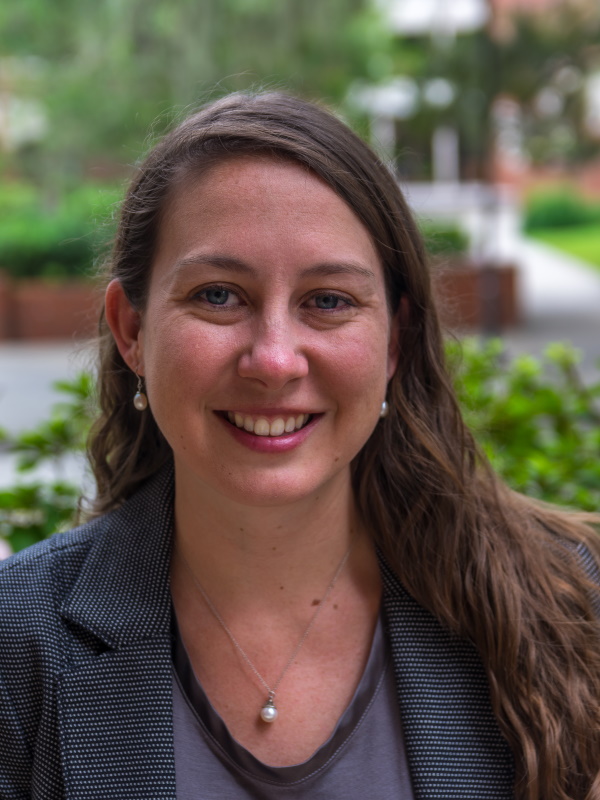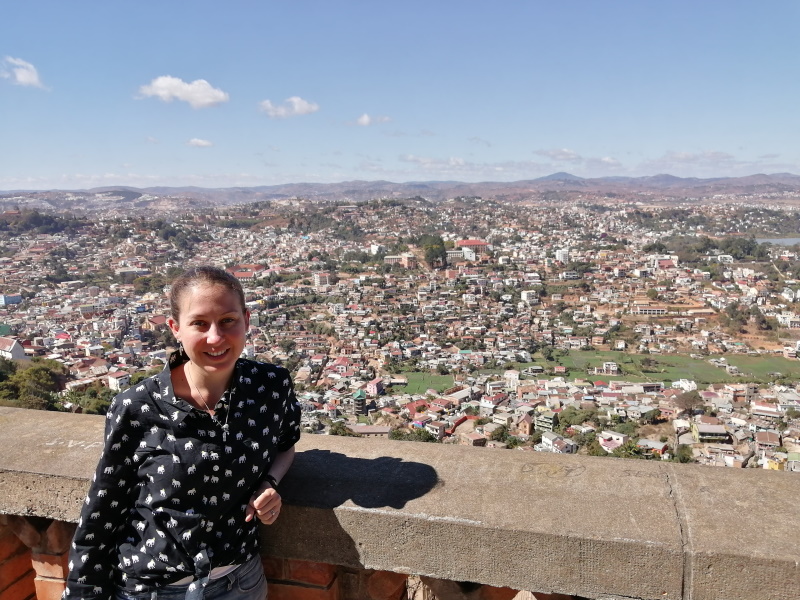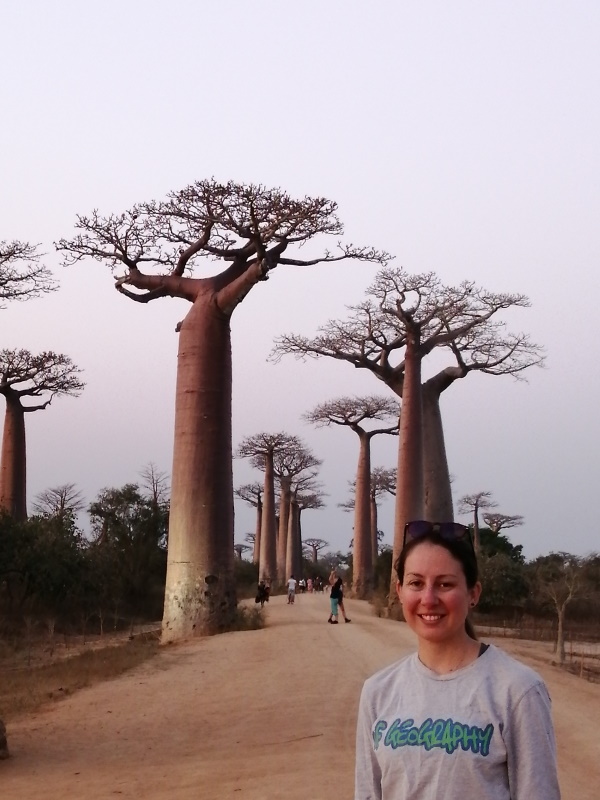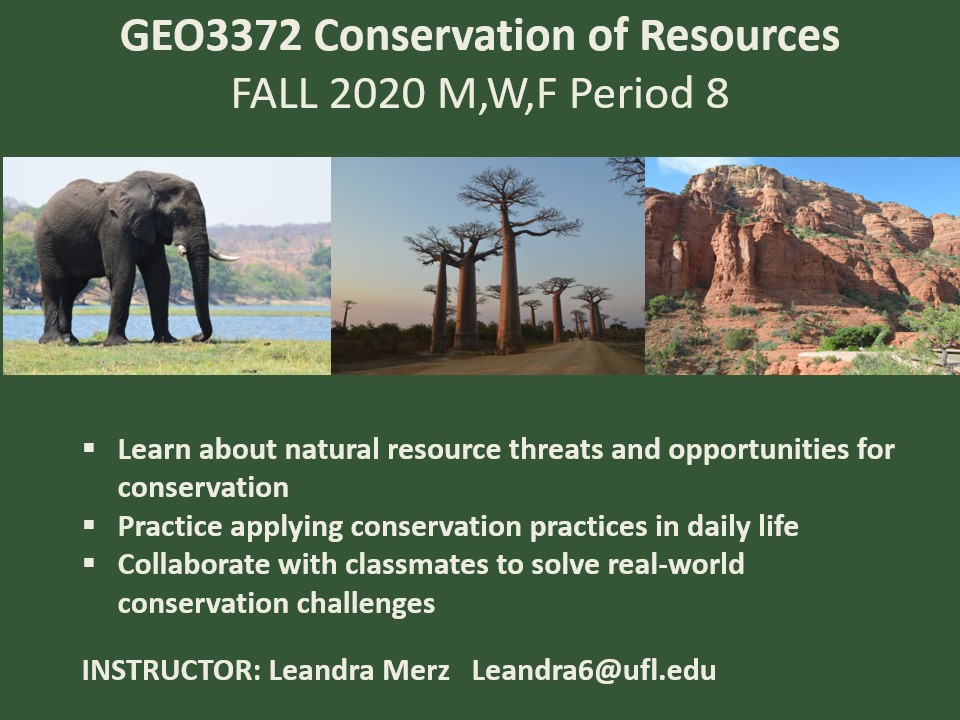
Leandra Merz
Pronouns: she/her
Graduate Representative 2020/2021
University of Florida
Adviser: Dr. Brian Child and Dr. Jane Southworth
Focus Area: Global Environmental and Social Change
Research Statement: My research centers on the study of human-environment interactions through the fields of geography and ecology. Specific areas of interest include community based natural resource management, people and parks, human dimensions of wildlife conservation, human-wildlife conflict, and coupled human and wildlife systems. My geographic focus is southern Africa with an emphasis on Zambia and Mozambique. I use participatory methods in the field combined with quantitative analysis in the lab to better understand these complex coupled human and natural systems with the joint goals of conserving wildlife and improving livelihoods.
Who is she?
Leandra Merz is a fourth year PhD student in the Geography Department. She is a Florida native and UF alum, who returned to Gainesville to pursue her PhD. She will serve as a Graduate Representative for the 2020/2021 academic year.
How did she get here?
Leandra grew up in West Palm Beach, Florida. As a child, she admired Jane Goodall and was fascinated with lions. She aspired to be a conservation biologist and imagined herself following prides of lions across the Serengeti.
When she graduated from High School, Leandra knew she had to go to the University of Florida and enrolled as a Wildlife Ecology and Conservation major. While in WEC, she studied abroad in Tanzania, studied Orca behavior at SeaWorld during a summer internship, polished her Spanish, began studying Swahili, and earned minors in African Studies and International Agriculture Studies – all in three and a half years. During this time, she pivoted from an interest in direct conservation work to a focus on sustainable development. She realized that people are the greatest threat – addressing the human dimension and sustainable development is the best way to conserve wildlife.

Leandra’s interest in sustainable development led her to a year in Zambia with the Peace Corps. She was assigned to a project with the Zambia Forestry Department linking income, food, and the environment to advance sustainable livelihoods without damaging forests. While working with the Peace Corps, Leandra learned Bemba – a Bantu language indigenous to Zambia. She returned to Florida unexpectedly, for health reasons and had not applied to any graduate schools.
She started volunteering at the Palm Beach Zoo where she was quickly hired as a zookeeper. Leandra worked as a swing keeper, working with anteaters, lemurs, and Florida Panthers. A zookeeper’s days are long – filled with feedings, meds, training, cleaning, giving conservation talks, second feedings, and locking up for the night. “There were very busy days. It wasn’t something I could do forever, but I loved it while I was doing it!”.
After two years at the Palm Beach Zoo, Leandra returned to Gainesville, where she took a Master’s of Sustainable Development Practice at the University of Florida. UF’s Sustainable Development program is structured as a practical program. Under the supervision of Dr. Brian Child and Dr. Renata Serra, Leandra learned Swahili (under the FLAS program) in preparation for a practicum in Mozambique with the Southern African Wildlife College. She worked with the Mangalane community in Mozambique – helping them gain their fair share of park fees paid to the national government and helping build institutions for self governance. The degree culminated in Leandra publishing a report – Situational Analysis of Mangalane, Mozambique for a Community Based Natural Resource Program.
Leandra really enjoyed learning and was a bit of an overachiever in school, but she also liked working with people in the field. She had promised herself that she wouldn’t waste time earning a PhD, so she moved with her husband to Zambia, where they founded IIM International – short for Imiti Ikula e Mpanga, a Bemba proverb meaning “small trees grow to be a forest” – a nonprofit that helps Zambian children finish High School. They started off by identifying the primary hurdles that the children faced. Nutritional issues, illness, and transportation problems caused poor attendance, so IIM International built a home where children have regular meals, bed nets, doctors appointments, and guards. IIM International also partnered with a local school and provided scholarships to provide funding for boarding students. So far, 29 students have graduated from the program and there are currently 24 students living at the home, or on scholarships at the local school.
After three years in Zambia, Leandra’s husband had to return to the United States for medical treatment. Leandra decided to return to UF to earn a PhD in the Department of Geography, with her Master’s adviser Dr. Brian Child and Department Chair Dr. Jane Southworth.
What’s she been doing at UF?
The Geography Department has been a great fit for Leandra’s research on coupled human wildlife systems in Southern Africa – “My research is very interdisciplinary so Geography is a great fit because it is inherently interdisciplinary and has a strong focus on human-environment interactions.” She has been using her strong connections to WEC and CAS, and building new relationships with folks in Sociology.

Leandra is currently working on the following projects:
- How attitudes toward wildlife are formed and how they vary across space in Mozambique
- Land-cover change in Kasanka national park and its buffer zone in Zambia
- The complexity of tolerance toward wildlife in Zambia’s North Luangwa National Park
- Variations in vegetation health in Zambia’s semi-protected Game Management Areas
- Social and ecological factors influencing pangolin trafficking in Zambia
Leandra recently published A Metacoupling Framework for Exploring Transboundary Watershed Management which explored how the water supply of small communities in the Limpopo River Watershed is vulnerable to transnational upstream issues. In this paper, she applied Remote Sensing skills she learned in Dr. Southworth’s GEO5037c Remote Sensing of Environment as well as Geospatial modeling techniques from Dr. Reza Khatami’s GEO6938 Geospatial Modeling. Anticipating future work in Mozambique, Leandra has also been taking courses in Portuguese (also under the FLAS program).
At UF, Leandra hasn’t just been taking courses, writing papers, and doing fieldwork – she’s also teaching Physical Geography, Economic Geography, and Human Footprints on the Landscape. This Fall she’ll be teaching GEO3372 Conservation of Resources.
As if that wasn’t enough, Leandra is one of the Grad Reps for the 2020/2021 school year. “Grad school can be difficult to navigate, but I think that as graduate students we can help support and encourage one another through the difficulties. I decided to run for grad rep because I want to support and encourage newer students and to help our department become even stronger. I hope to focus on regular communication, social opportunities, and providing links to helpful resources from the department, college, university, and other organizations.”
How has she been holding up during the pandemic?
During the lockdown, Leandra has had plenty to do. She and her husband started fostering a 5 month old little girl in addition to the 12 year old boy they’ve been fostering for the last year. They all live together on a 10 acre farm between Newberry and High Springs with 100 ducks, 6 goats, 2 dogs, and a cat. She has also somehow found time to take some exciting teaching workshops from home, along with occasional trips to O’Leno State Park.
Credit: Mike Ryan Simonovich
